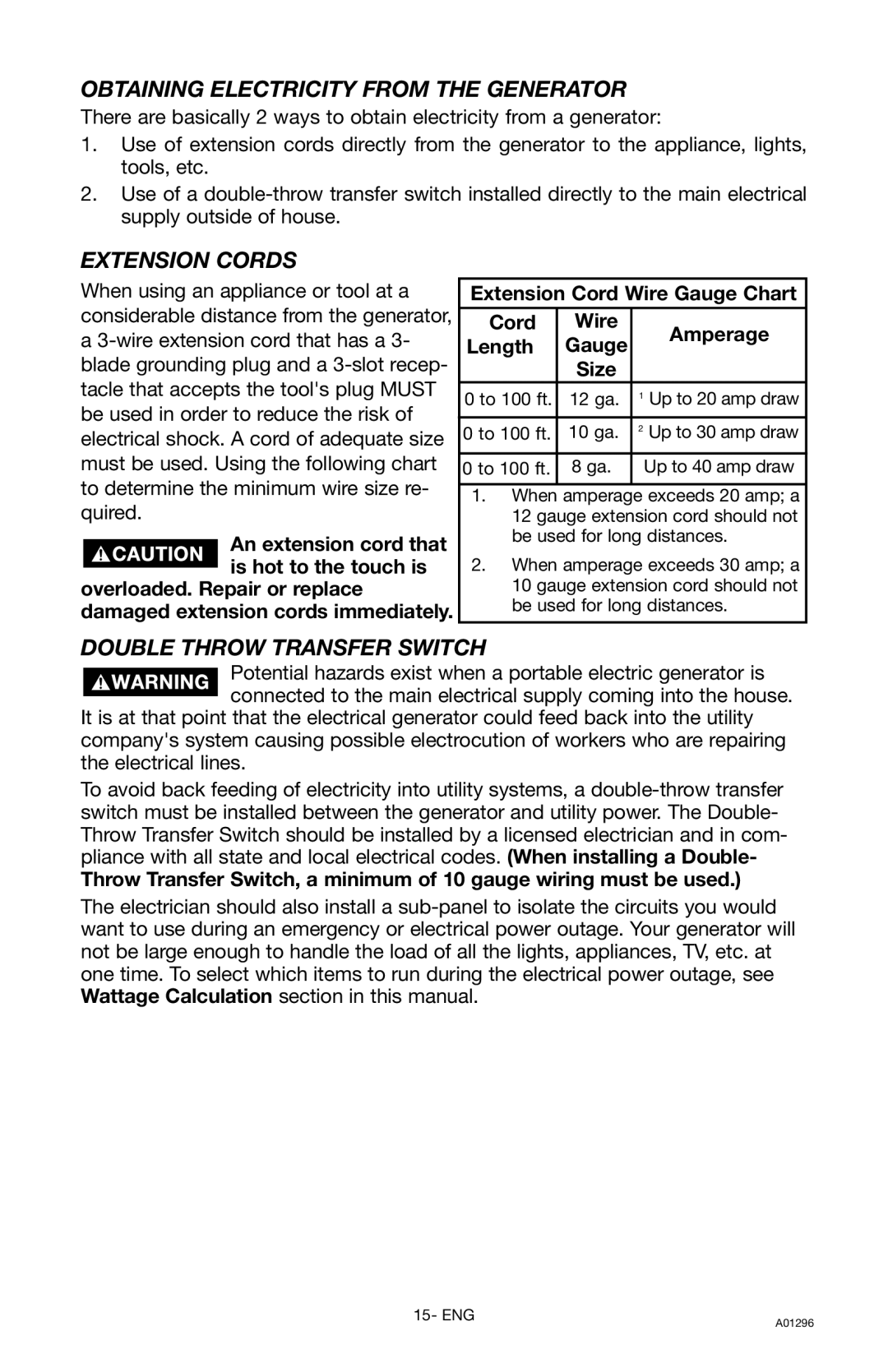
OBTAINING ELECTRICITY FROM THE GENERATOR
There are basically 2 ways to obtain electricity from a generator:
1.Use of extension cords directly from the generator to the appliance, lights, tools, etc.
2.Use of a
EXTENSION CORDS
When using an appliance or tool at a considerable distance from the generator, a
An extension cord that is hot to the touch is
overloaded. Repair or replace damaged extension cords immediately.
Extension Cord Wire Gauge Chart
Cord | Wire |
| Amperage |
Length | Gauge |
| |
|
| ||
| Size |
|
|
0 to 100 ft. | 12 ga. | 1 | Up to 20 amp draw |
|
|
|
|
0 to 100 ft. | 10 ga. | 2 | Up to 30 amp draw |
|
|
|
|
0 to 100 ft. | 8 ga. |
| Up to 40 amp draw |
|
|
|
|
1.When amperage exceeds 20 amp; a 12 gauge extension cord should not be used for long distances.
2.When amperage exceeds 30 amp; a 10 gauge extension cord should not be used for long distances.
DOUBLE THROW TRANSFER SWITCH
Potential hazards exist when a portable electric generator is connected to the main electrical supply coming into the house.
It is at that point that the electrical generator could feed back into the utility company's system causing possible electrocution of workers who are repairing the electrical lines.
To avoid back feeding of electricity into utility systems, a
Throw Transfer Switch, a minimum of 10 gauge wiring must be used.)
The electrician should also install a
15- ENG
A01296
